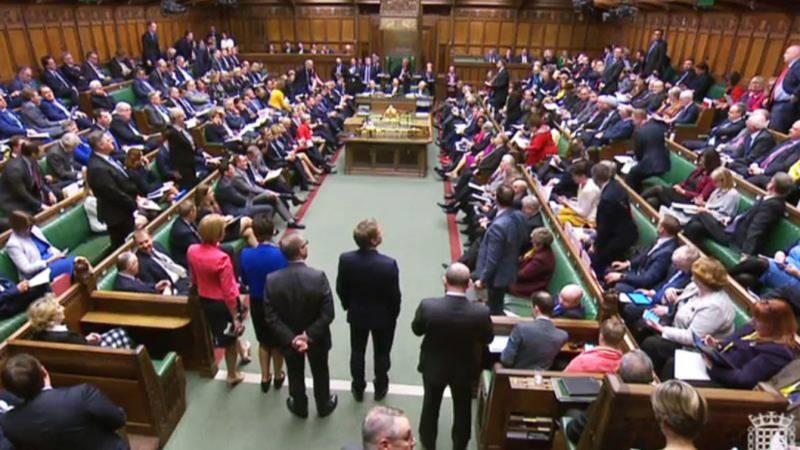LONDON - Lawmakers returned from their summer recess Tuesday for a pivotal day in British politics as they challenged Prime Minister Boris Johnson’s insistence that the U.K. will leave the European Union on Oct. 31, even without a withdrawal agreement to cushion the economic blow.
Amid loud cries from protesters on the streets surrounding the House of Commons, the lawmakers turned to a key piece of legislation on their agenda that would prevent an immediate no-deal exit. If it passes this week, Johnson’s Downing Street office said he’ll call an early election — taking his role as Brexit champion directly to the people.
Johnson, who took power in July, has tried to crack down on members of his Conservative Party who oppose his Brexit plans, warning they would be expelled from the party if they supported the parliamentary efforts to block or delay the withdrawal. The so-called rebels, many of whom have been among the party’s lions for decades, are responding with acerbic commentary on TV, social media and the newspapers.
Dominic Grieve, who was attorney general in David Cameron’s government, says the expulsion threats demonstrate Johnson’s “ruthlessness.” Former Cabinet minister Justine Greening said she feared her beloved party was “morphing into Nigel Farage’s Brexit Party.” Former Treasury chief Philip Hammond warned of the “fight of a lifetime” if officials tried to prevent him from running in the next election.
All three are opposing Johnson, with Hammond saying he expected a procedural vote to take control of business. If it passed, a vote to block a no-deal would be considered Wednesday.
“Many colleagues have been incensed by some of the actions over the past week or so, and I think there is a group of Conservatives who feel very strongly that now is the time to put the national interest ahead of any threats to us personally or to our careers,” Hammond told the BBC. “I think there will be enough people for us to get this over the line today.”
As Brexit faces crucial days, international investors are showing concern. The pound sterling fell as low as $1.1960 on Tuesday, down about a cent on the day before, stabilizing around $1.1990.
That was its lowest level since a “flash crash” in October 2016, when uncertainty after the Brexit referendum was particularly high. A no-deal Brexit is considered dangerous because it will sever decades of seamless trade with the single market of 500 million. But Johnson insists the potential for leaving without a deal must remain as a bargaining chip in negotiations with the EU.
Though the EU is Britain’s biggest trading partner, a no-deal Brexit would also be disruptive to Europe — a fact not lost on Brussels. Johnson’s supporters said lawmakers were weakening the government’s negotiating position with the EU.
“The one thing that has helped focus minds in the EU is that we’re leaving come what may and we’ve got a very focused task of what a good deal would look like,” Foreign Secretary Dominic Raab told ITV. “But the lingering doubt they’ve got is: Will the shenanigans in Parliament somehow lead to the cancellation or the delay of Brexit?
“That’s encouraging them, and weakening our position to actually get the deal we all want.”
The bloc is adamant it will not renegotiate the agreement struck with former Prime Minister Theresa May, which Johnson considers unacceptable.
Johnson has told French President Emmanuel Macron and German Chancellor Angela Merkel he could come up with a better alternative to the main sticking point in the stalled Brexit negotiations — the deadlock on the Irish border question.
But with the clock ticking, the EU said Tuesday it had received no proposals from the British government aimed at overcoming the impasse in Brexit talks.
European Commission spokeswoman Mina Andreeva said the EU’s executive body, which supervises Brexit negotiations on behalf of Britain’s 27 European partners, is operating on the “working assumption” that Britain will leave the bloc on Oct. 31.






